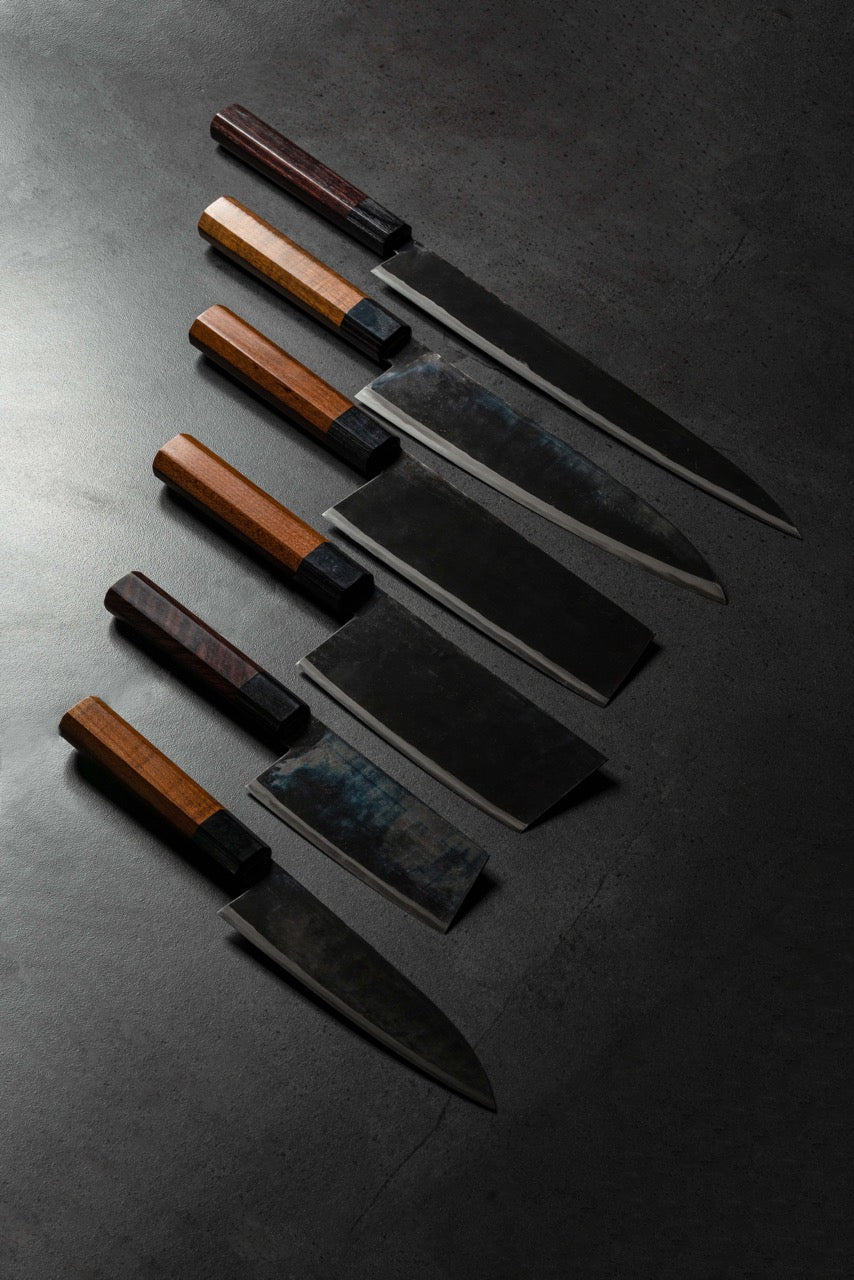
Hitohira Futana S3 Nashiji Santoku 170mm Cherry
Stay Sharp business offer
10 knives = 20% off
25 knives = 25% off
50 knives = 30% off
The discount is automatically added to your cart
Note: Please allow approximately 2 months for delivery. For further details, please contact us at info@staysharpmtl.com
Description
The word Santoku translates as: three virtues, which can refer to the cutting of meat, fish and vegetables or to the following three types of cutting; chopping, slicing and dicing. Very versatile, the santoku is one of the types of knives we recommend as the first or main knife in the kitchen.
Ginsan is a steel very similar to Shirogami 2 in its composition. An addition of 14% chromium results in a stainless steel with low impurities. As a result, blades forged from Ginsan have a high hardness and cutting retention capacity that rivals most blades made from traditional high carbon steels. The purity of Ginsan makes it a preferred steel for blacksmiths who work with steel in the traditional way and is pleasant to sharpen.
Nashiji is a Japanese word meaning "pear skin pattern". Coming from a knife finishing technique where the surface of the blade is left raw or rustic, imitating the skin of the Asian pear.
Futana is the name of a line of Hitohira's house knives. As with all products that carry Hitohira's trademark (ひとひら (一片)), a high standard of quality is assured. Under the name of Futana you will be able to find knives of any profile made of stainless or semi-stainless steel. In addition, you will be able to find these blades with several different types of finishes; nashiji, kurouchi, damascus etc.
Maintenance tips
Have it sharpened on a water stone by a professional every year. Store in a dry place. Wash immediately after use and dry completely before storing. Do not let soak. Not dishwasher safe.
Guarantee
Guarantee
Each knife is guaranteed for life for obvious issues related to the manufacturing of the product. For example, if the handle becomes loose or cracks after a few weeks of adequate use. Or if the blade has a crack from the edge to the column of the blade. These problems are rare, but can occur. In which case you will be offered an exchange for the same product or a refund. As each case is different, it is at our discretion to assess whether our lifetime warranty for obvious manufacturing issues applies.
After sales service
Is your knife not cutting as well as you expected? Each knife comes with what is called its "original sharpening". We have more than 200 different products in stock and often, several copies of each. All our products are handcrafted in Japan before being sent and the "original sharpness" may vary. If you think your knife isn't cutting to its full potential, don't hesitate to contact us and we'll fix it for you by sharpening the knife for free!
Oops, has there been an accident with your blade?
Has your knife fallen to the ground, been damaged in a wrong move or was used to cut a product that was too hard? We take care of it, we support you and your knife, offering you an in-store sharpening and repair service !
Do not hesitate to contact us or stop by the store to get an estimate in just a few minutes!












